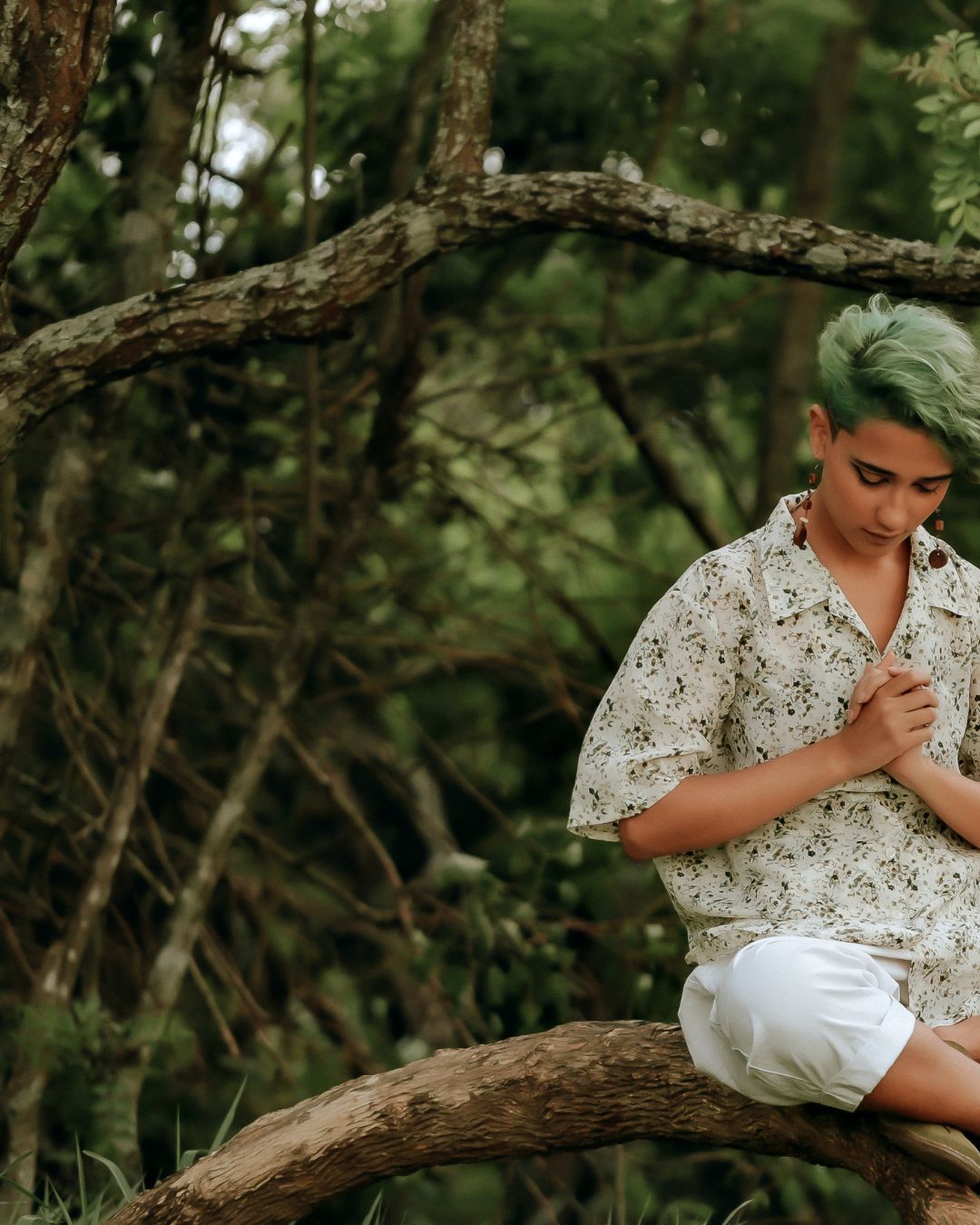Masturbation is a normal part of human sexuality, yet many people grow up feeling shame or guilt when they’re “caught” doing it. Whether it’s a parent, child, or partner who walks in, the experience can be awkward — not because masturbation is wrong, but because of the way society has conditioned us to think about it. In this blog, we’ll explore why that guilt exists, how to deal with these situations, and most importantly, how to replace shame with empathy and education.
Whether it's parents walking in on their kids.
Kids walking in on their parents.
Partner walking in on their partner.
Why are we made to feel shame or guilt?
First off, we believe using the word “caught” is wrong.

You can't get caught masturbating, because masturbation isn't wrong. Masturbation is healthy and there is nothing wrong or evil about it. Without proper sex education in India, many of us are made to feel like we are doing something… sinful.
Religions teach us that it is sinful to touch ourselves for pleasure. Parents react badly when they walk in on their kids masturbating, instilling shame into their kids and therefore creating a vicious cycle.
That cycle needs to end.

Why Do We Feel Shame When Caught Masturbating?
From religious teachings to cultural taboos, masturbation is often portrayed as something dirty, sinful, or embarrassing — especially in countries like India where sex education is still considered taboo. These beliefs create lasting guilt and discomfort around natural human behavior. The word “caught” itself implies wrong doing, when in reality, masturbation is a healthy form of self-discovery and self-love. It's time to change the narrative.
What to Do When Someone Walks In: Parents, Children, and Partners?
1. Parents walking in on children
So your child is now of the age where they might be exploring their sexual side. What should you be doing so that they don’t have a traumatic experience with their sexuality?
-
Knock:
We can’t emphasize this enough. In India, privacy is a luxury and most families believe it is NOT a right. This leads to convoluted ideas on personal safety and mixed messages on our right to privacy, with cause for anxiety, shame, guilt and fears that could impact a person’s journey with their self-image and sexuality. -
Communication:
Give them the sex education they need. Tell them it is normal and give them literature they can consume in private to understand themselves better. -
Safety and consent:
Make sure they understand that no one can touch them without their consent. Revisit the subject of consent routinely, so when they are ready to explore with another person, they do it under safe circumstances and the concept feels like muscle memory. -
Avoid Scare Tactics:
Here are some fear-inducing myths about masturbation that come from the mouths of adults: “Paap lagega", "You will get cursed by God”, “You’ll go blind.”
These may have frightened children out of the habit, but they also created unwarranted guilt and damaged self-esteem, resulting in unhealthy s*xual attitudes.
And, once children discovered that these threats were untrue, advice on other s*xual matters became suspect.

2. Children walking in on parents
So your child walked in on you pleasuring yourself?
-
Knock:
Teach them the importance of knocking and respecting another person’s private spaces and time. They need to understand the importance of their own privacy AS WELL as another person’s privacy being equally important. -
Communication:
Use simple language to explain that adults also need private time to care for themselves, and that masturbation is one healthy way of doing that. Normalize the behavior while reinforcing the idea of respectful boundaries.
Let them know that even at an older age it is normal and it doesn’t mean you love their other parent less. It may also help to have the partner in the room when the conversation occurs so they understand the transparency of it all. -
Safety and consent:
Make sure they know that no one can touch them without their consent.
Help them understand consent and revisit the subject routinely so they develop healthy ideas around privacy, boundaries, respect and compassion towards themselves as well as towards friends and potential partners. -
Anger:
Shouting or shaming at this moment can make your child internalize the idea that touching themselves is bad. Instead, guide the conversation calmly and emphasize privacy and mutual respect. It's a powerful opportunity to reshape their early ideas around sexuality.
Their mind will think they walked in on you doing something ‘wrong’ which will perpetuate the understanding that it is a sinful thing to do. It might also impact their ability to talk to you about certain things, so make sure your tone is always constructive, supportive and solution-oriented, not authoritative or fear-inducing. Be kind, be empathetic and educate.

3. Partner walking in on partner
-
Knock:
Just because you are partners doesn’t mean there should be no privacy between all of you. Having your alone time and privacy is your right. You need to have clear boundaries for a healthy relationship with yourselves as well as with others. -
Communication:
Many people feel confused or even betrayed when they see their partner masturbating, but this doesn’t mean something is wrong with the relationship. Masturbation is often about self-connection and exploring one’s own body. When partners can talk openly about their desires, boundaries, and needs, it actually strengthens intimacy and sexual compatibility. -
Anger:
Try not to lash out on your partner. First, give them privacy & let them tell you when they are ready to to have a conversation about their needs. Demanding explanations will not help. Same goes for the partner being walked in on.

I still feel guilty when I masturbate. What do I do?
1. Understand that this guilt is not a fault, and isn't a flaw that needs aggressive correction. You've likely grown up in an environment that looked down upon sexual agency and expression and like many of us, might have been told directly or indirectly that sex is only for marriage and only for reproduction. It's not your fault for battling shame and guilt.
2. Know where it comes from. This can be a slightly overwhelming process, so take it slow. Talk to friends or trusted peers who can engage in these conversations in healthy ways, and notice who/where these feelings of shame came from.
3. Slowly step out of your comfort zone and engage with mediums like movies or books where characters have conversations about sex. Let the language become more normal for you, so the feelings that accompany those words and thoughts can feel less scary for you too.
4. Acknowledge that masturbating is not compulsory, necessary or in direct conflict with your identity or orientation in any way. You can be asexual and still masturbate. You can be a trans person or an enby person and still masturbate any way you like. That's between you, your body and your mind alone, and nobody else gets to define your identity or challenge your labels, ever.
5. Therapy: If accessible & affordable, then therapy is a safe space to understand and battle negative feelings.
Destigmatizing Masturbation in India
In Indian culture, conversations around sexuality are still considered taboo. Most of us never had honest conversations with parents or teachers about self-pleasure. But the narrative is shifting — thanks to better sex education, mental health awareness, and open conversations. Masturbation is not a “western concept” — it’s a natural, universal experience. Whether you’re single, married, queer, trans, or asexual — it’s your body, your choice, your privacy.
Conclusion: It’s Time to Replace Shame with Empathy and Education
Getting “caught” masturbating — whether as a child, adult, or partner — doesn’t need to be a source of lifelong shame. It’s a deeply human, personal act that becomes complicated only when it's surrounded by silence, judgment, and misinformation. By fostering open conversations, respecting privacy, and normalizing self-pleasure, we can break toxic cycles of guilt and give ourselves (and future generations) the gift of healthier sexuality. Let’s shift the narrative from fear and secrecy to respect, consent, and compassion — starting today.
Let’s Keep the Conversation Going
If this blog helped you rethink your perspective, share it with someone who might need it too. You’re not alone — and talking about masturbation shouldn’t be taboo.
Want more guides on sexual health, communication, and breaking taboos? Subscribe to our newsletter for empowering, judgment-free content.
FAQs
1. Is it normal to masturbate in a relationship?
Yes, it’s completely normal to masturbate even if you're in a relationship. Masturbation is a form of self-care and self-exploration. It doesn't mean you're dissatisfied with your partner — rather, it's a way to understand your own body better, reduce stress, or simply enjoy personal time. In fact, couples who talk openly about self-pleasure often have more satisfying and communicative sex lives.
2. What should I do if my child walks in on me masturbating
Stay calm — how you react in that moment will shape how your child perceives sexuality. Avoid yelling or shaming, or worse, pretending nothing happened. Later, have a gentle, age-appropriate conversation about privacy and bodies. Let them know what they saw was normal, and emphasize that everyone deserves private time. Teach them about knocking and respecting boundaries in a way that’s easy to understand.
3. What should I do if I walk in on my child masturbating?
Again, stay calm and don’t shame or punish them. Masturbation is a natural part of growing up and exploring one’s body. Give them privacy in the moment, and have a conversation later to normalize what happened. It’s also a great chance to open up a dialogue about consent, boundaries, and healthy sexuality.
4. Why do I feel guilty after masturbation?
Feelings of guilt often stem from cultural, religious, or societal messages that label self-pleasure as “sinful” or “dirty.” You're not alone in feeling this way — but the truth is, masturbation is a normal, healthy expression of sexuality. Challenging this guilt starts with unlearning harmful beliefs, educating yourself, and creating a more accepting inner narrative. Therapy can also help if the guilt feels overwhelming.
5. Is masturbation harmful or unhealthy?
Not at all — in fact, masturbation has several health benefits. It can reduce stress, improve sleep, boost mood, relieve menstrual cramps, and help you understand your sexual preferences. It only becomes a problem if it interferes with daily life or relationships, in which case professional support might help.
6. How can I talk to my kids about masturbation without making it awkward?
Start early with simple, age-appropriate language. Use proper terms for body parts, and avoid fear-based language. Normalize the idea that exploring one’s body is okay, but should be done in private. Be open, non-judgmental, and let them know they can always ask questions. The more natural you make it, the less awkward it becomes for both of you.


















Leave a comment
This site is protected by hCaptcha and the hCaptcha Privacy Policy and Terms of Service apply.